‘It’s not bush, it’s a garden’
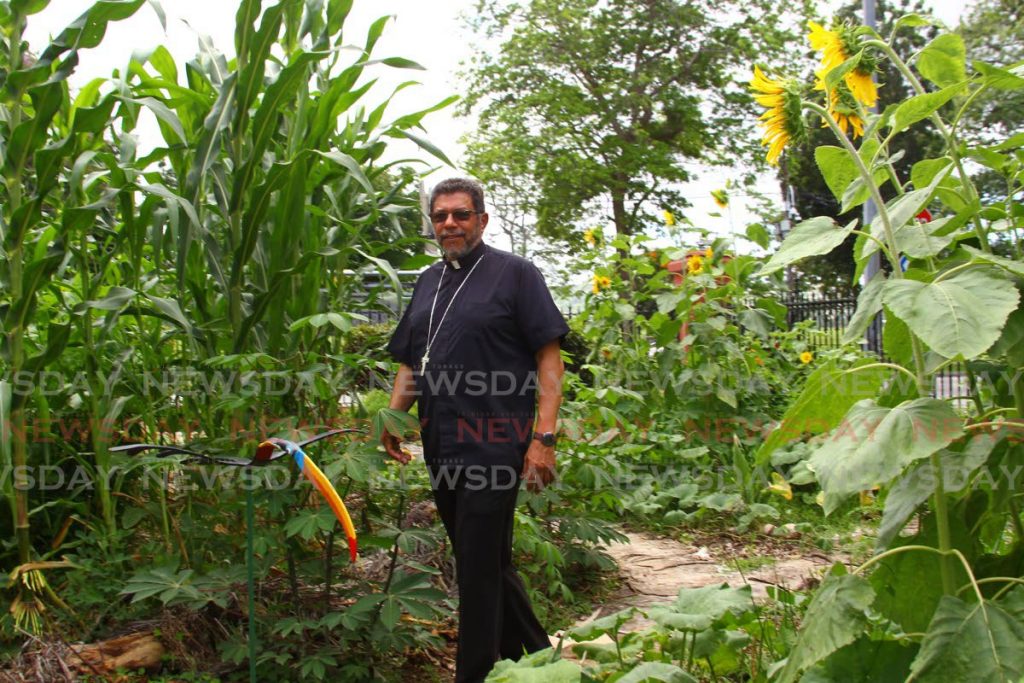
Savannah runners, coconut vendors, dwellers and people passing by the RC archbishop’s residence opposite the Queen's Park Savannah, Port of Spain, have all noticed a change outside the residence in the past few months.
The grounds are filled not with pruned grass, hedges and flowerbeds, but with tall bush and vines.
What many might have thought was an unkempt yard is in fact a beautifully designed garden.
Archbishop Jason Gordon, with help from agricultural experts, has been carefully turning the grounds into a sustainable kitchen garden since the end of May. He gave Newsday a tour of it last Thursday.
Gordon says the project began after the stay-at-home measures were implemented and borders were closed, limiting the import of goods and services. As a proactive solution to what he feared would become an even bigger problem, he transformed the space – previously a lawn bordered by flowering hedges.
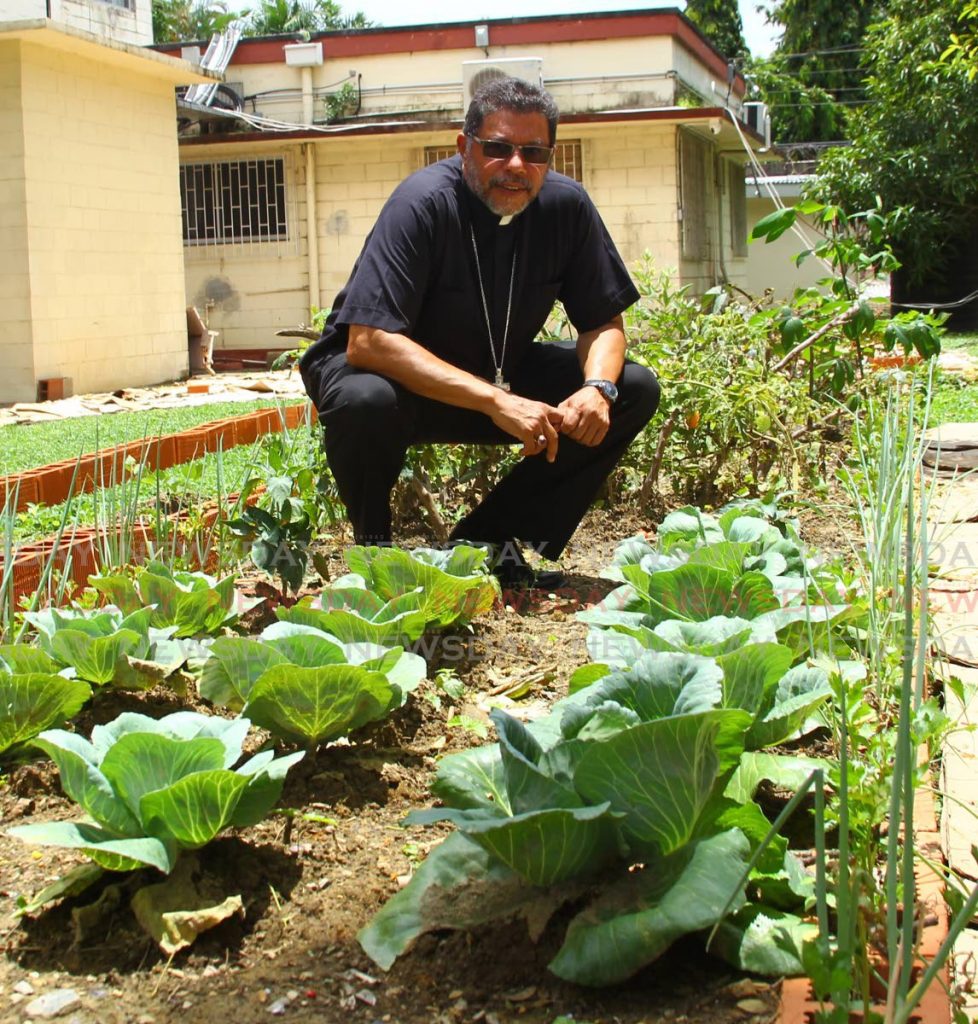
"The only way to feed the nation is to encourage everybody to grow something in whatever space they have,” said Gordon. “If everybody grows a little something, we’ll have more than enough to feed the nation. But if we expect to have foreign reserves to buy food with a dollar that might be sliding, with a price going up, we’re going to put ourselves in trouble.”
Behind the early-20th-century building are two grow boxes; the Ministry of Agriculture helped to build them. The boxes use what Gordon referred to as a “traditional approach to agriculture,” with vegetables used in every kitchen, including chive, celery and other green seasoning, patchoi, lettuce and cauliflower.
The seeds for the grow boxes were provided by the ministry, which launched the Grow Trinbago National Seed Initiative in May, encouraging households to take up at-home gardening.
The church also distributed 3,000 packets of seeds to people all over the country this past Corpus Christi on June 11– said to be a good date for planting – in support of the initiative.
“We want this food initiative to emerge as something that everybody's doing.”
Though the project only began at the end of May, the staff of the residence has already enjoyed the fruits of their labour.
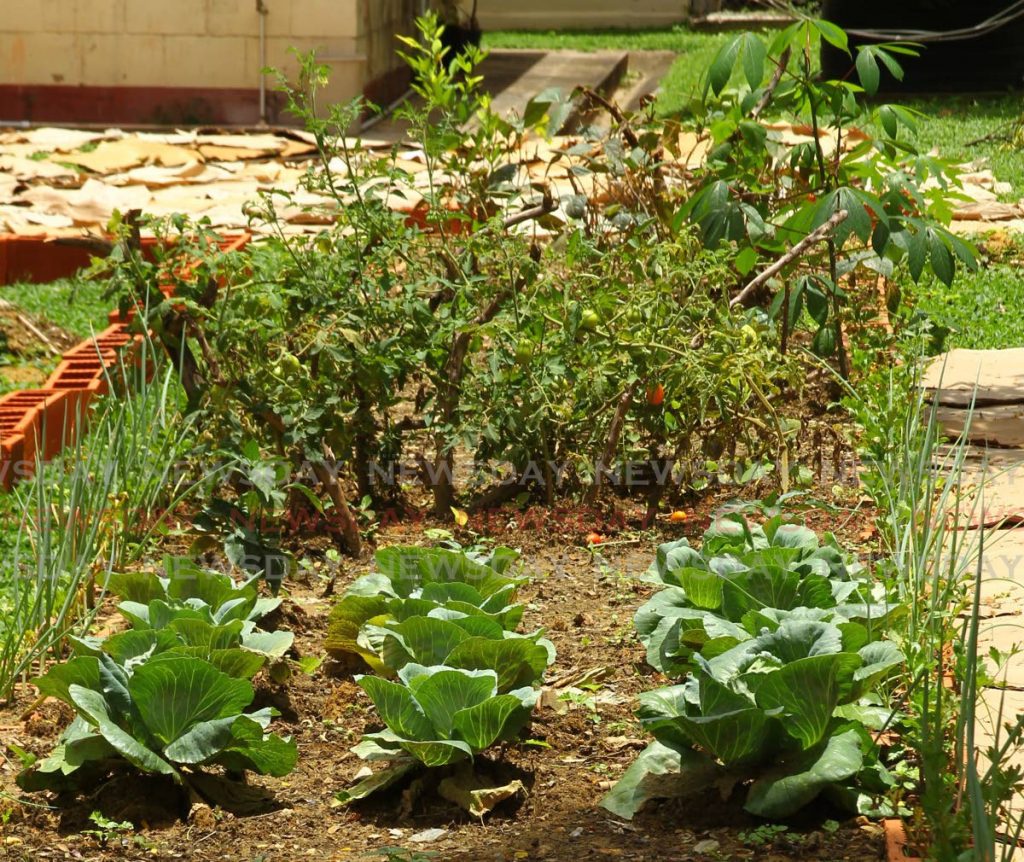
“We had some big patchoi,” said Gordon with a laugh. “We've reaped string beans and ochro already (and) we have tomatoes coming.”
At the front, facing the savannah (the building is one of the Magnificent Seven), is a more extensive lot, with a wide array of flora suitable for both consumption and admiration.
“This part of the garden is non-traditional agriculture. This has a whole philosophy of building an ecosystem.”
The design and landscape of this portion of the garden is being tended to by agriculturist Charlene Maria Woo Ling, who also assists with the grow boxes.
“Charlene’s philosophy is, God knew what he was doing, and that if you leave nature alone, it works,” said Gordon. “It does not need chemicals and what emerges is an ecological system that is balanced.”
Woo Ling could not be reached for comment, but her Facebook page provides step-by-step instructions on planting in life cycles and layers, which is, according to her page, “planting by time and space to maximise the use of your bed, similar to the forest.”
Gordon explains that in Woo Ling’s approach, luring in insects is important.
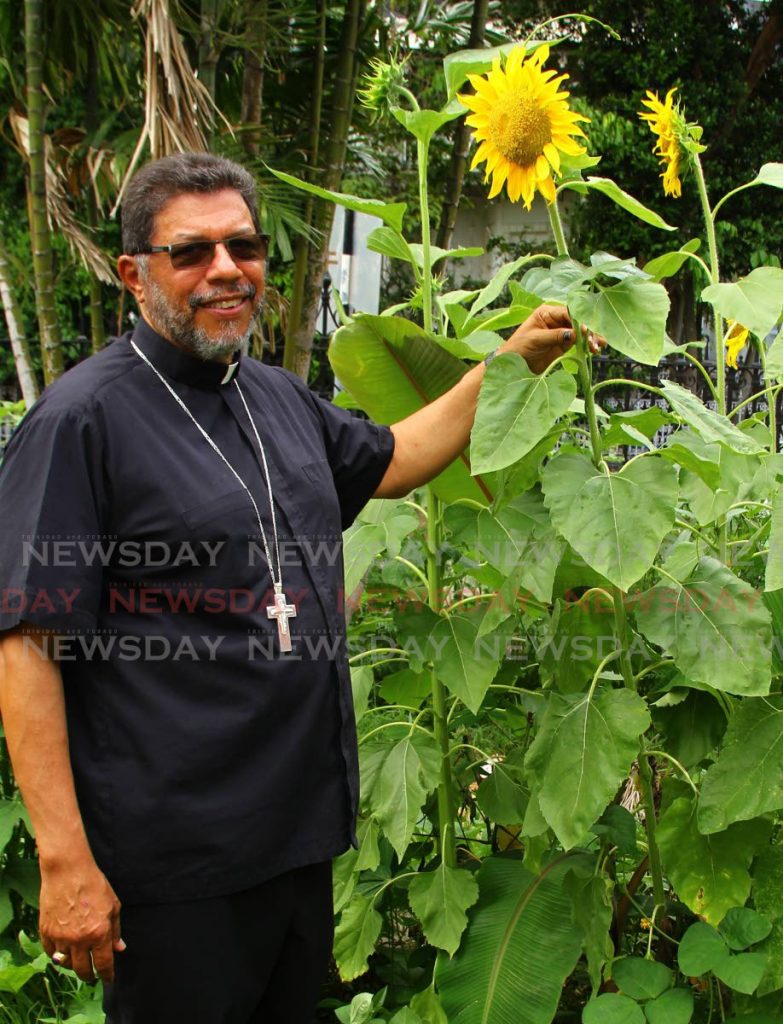
“The ecosystem sustains itself, where it makes sure the insects eat but don't destroy, that the plants flourish but don't become overburdened, and all the different plants work together to create a self-sustaining system.”
The garden is a mixture of fruits and vegetables such as banana, ochro, bodi, corn, kale and lettuce, interwoven with plants like marigolds and sunflowers, “where the seeds are good for eating but also the plants attract pollinators and allow cross-pollination,” he explained.
The project was not just intended to sustain the staff of the residence. The archbishop has bigger plans in mind for the garden.
"We're going to do several things with it. A portion of it is always going to go to the poor.”
Gordon warned, “It is my belief that we're going into difficult days and feeding the nation is going to become more and more difficult.”
He explained the project was three-fold, starting at the residence and then at the seminary at Mt St Benedict, where it has already begun.
The next part of the plan includes going to households with more seeds to encourage the public to plant.
In the future, Gordon would like to create a Saturday barter market in some parishes, “where your excess gets you something else you're looking for. You might have planted corn and you have more corn than you can deal with, and someone else may have what you want.”
Gordon would like the country to start thinking of alternative ways to ensure everyone from suburbs to remote villages can access the food they need.
“Even with unemployed people who might have a little plot of land: get on with planting and you will be eating.”
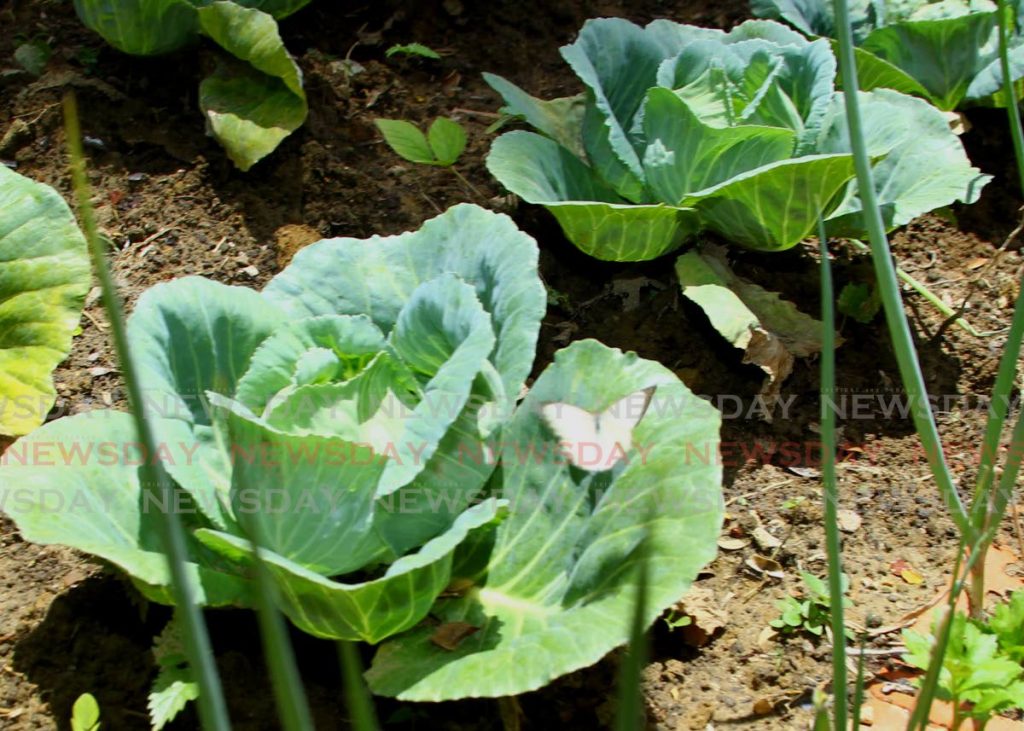
Gordon admits although he has got his hands dirty helping in the garden alongside Woo Ling, he is still learning.
“The PM is a licensed farmer, I am not,” he said with a laugh. “I'm doing a thing. I'm learning as I go – quickly – but I have some great help around, which makes it very intriguing."
The grounds are also home to a serenity garden in the shape of a labyrinth, as a spiritual symbol for meaning and guidance for those who walk.
"We have all kinds of gardens here," he joked. "This one is for spiritual food to feed your soul."
“This nation is too beautiful to starve,” he said, adding he hopes the project creates self-sustaining communities.
“That's what I want to see for the country ultimately: that in a difficult time, if each one helps one, we could make it out of this.”


Comments
"‘It’s not bush, it’s a garden’"